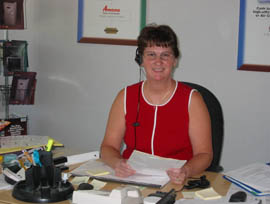A California contractor is now applying a new GPS service that is helping the company locate and manage employees at minimum expense through the use of cell phones.

GPS-Enabled Mobile Phones
Xora Inc., Mountain View, Calif., recently announced a new version of its GPS TimeTrack service, which provides a low-cost time, location, and job-management application, the company says, that promises to move real-time mobile employee and asset management into the mainstream.The GPS service is designed to help businesses track their employees and hours worked, implement overtime policies, accurately account for time and billing, and increase the productivity of the mobile workforce, the company says. The new release of the GPS service offers such features as automated dispatch, wireless text alerts, team and group management for large user deployments, and job scheduling.
Unlike services that track physical assets, such as service vans, and require vehicle-mounted GPS receivers, GPS TimeTrack combines an Internet-based service, smart mobile applications, and a new generation of GPS-enabled cell phones that stay with the employee.
The company is initially using Nextel phones for this service. Pricing includes a one-time setup fee of $24.99 per user and a monthly service fee of $11.99 per user per month, to enable smaller companies to get into the technology more affordably.

Moving Into The Future
“This is the future for small businesses,” stated Debra Carlson, office manager at Valley Heating and Air, Carmichael, Calif. “GPS TimeTrack has become the single most important tool I use for keeping track of my workers, their hours, and what they’re doing. We have two departments using it right now, and it is the only way we can keep track of costs and actual hours worked. The Xora service paid for itself within the first hour of use.”This small contracting company, owned by Jason Macktinger, has 11 employees including office staff. It has been in business for 43 years. “We have some commercial accounts,” said Carlson, “but the majority of our business is residential.”
She noted that the company’s Nextel rep called and introduced management to the new service, and “We decided to give it a try. We have had Nextel for well over a year and use their walkie-talkie phone.” Valley Heating and Air has been using the GPS TimeTrack service for about six months now.
“Our service department and installation department have the GPS on their phones,” Carlson said. “We have seven phones now in operation. We only give these phones to people who are actively in the field.

“We are moving into the job scheduling program, but tend to rely on tracking to find the most convenient worker for a situation and then contact them on the phone.”
The GPS TimeTrack service allows companies to capture start and stop times for shifts, jobs, and breaks, while monitoring the speed of mobile workers. In addition, businesses can use the service to create location maps, detailed job reports, as well as download information into financial and payroll systems.
Carlson makes use of the location maps feature. “It is one way to find out who is the most conveniently located employee for the next call.”
Although Valley Heating and Air uses the GPS system for timecards, the company is still using paper timecards to make up for “human lapses.”

As for downloading the data collected by the system, Carlson said she downloads the information into an Excel spreadsheet and then forwards payroll data to accounting. “At this time we do not have a payroll application for direct connection to the Xora information.”
Some added benefits of the GPS service, she noted, are that it keeps employees motivated and on task. It also provides precise payroll information. “The phone is on and you are working; it is off and you are not — very simple,” said Carlson. “This helps with payroll issues that arise and also helps with the management of workers’ comp. You pay workers’ comp by the hour and GPS TimeTrack gives us an exact figure and backup of that information.”
An Evolving, Scaleable Service
According to Ananth Rani, vice president of products and services at Xora, “Because GPS TimeTrack is based on the technology platform that Xora has installed at many Global 3000 businesses, we are able to quickly evolve and scale the service offering to meet changing customer requirements. We are very excited about our ability to continually make product improvements that help our customers be more profitable.”For more information on the GPS service, visit www.xora.com or e-mail info@xora.com.
Publication date: 08/25/2003








